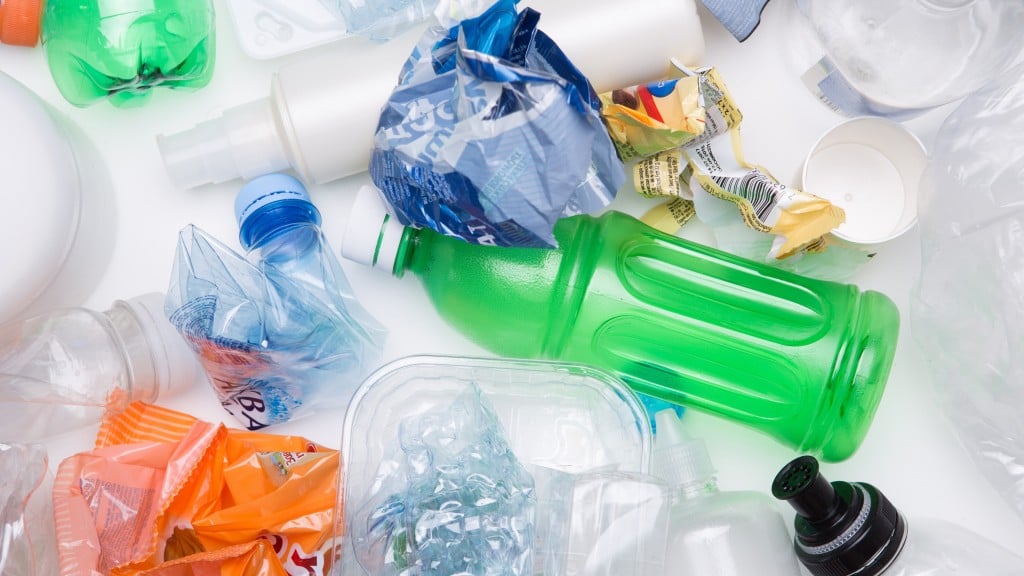Commentary: The missing link for plastics
Big producers and government working to find solutions to plastic waste are overlooking a vital partner

A casual reader of the news is hard pressed to avoid stories about plastic waste. For someone in the waste and recycling industry, it is the trending topic of the past year. New plastic waste partnerships, coalitions and working groups are announced on what seems like a weekly basis, with governments and multinational brands making public commitments to curb reliance on plastics - especially those of the single-use variety.
Many of these pledges come in the wake of news stories highlighting the devastating effects of plastic waste inundating waterways around the world. Jarring images of dead wildlife, their bellies bursting with packaging, bottles and plastic marine equipment, paint a dismal picture: if our current consumption and disposal of plastic doesn't change, our planet and everything on it is likely to be overrun by the material in the coming decades.
Global consumer goods producers and governments alike are announcing plastic waste strategies. As part of their Greening Government Strategy, the Government of Canada announced steps to reduce plastic waste by increasing plastic waste diversion, reducing single-use plastic in operations, meetings and events, and procuring sustainable plastics products.
In January, Walmart Canada announced the Walmart Canada Charter on Plastics, which outlines a number of goals aimed at reducing plastic waste and boosting plastic recycling, including eliminating single-use plastics from corporate operations, reducing packaging in Walmart brand products and eliminating "hard-to-recycle" plastics from brand packaging.
Initiatives to boost plastic recycling, especially those that emphasize procurement policies and design for recycling are positive steps, but these commitments do not reflect the current reality of plastic waste management. There is a serious lack of plastics recycling infrastructure across the globe and far too much plastic is produced relative to the demand for the material. Regardless of how recyclable a plastic item may be, only a fraction of the plastic produced and consumed is ultimately collected for recycling. Of the plastic collected, only a portion undergoes the recycling process and returns to the value stream. This creates a considerable imbalance in the market.
Recent changes to the global plastics market have only emphasized this imbalance. When the world's largest purchaser of secondary plastics, China, closed its doors to the material last year, countries around the world were overwhelmed by backlogs.
Simply put, North America does not currently have the means to manage all of the plastic we consume.
Under these circumstances, one can expect governments will begin to impose more stewardship responsibilities on plastic producers. With many multinational corporations setting plastic recycling targets and joining plastic waste alliances, it would appear big business is very much aware of the need to make products more environmentally friendly or risk burdensome legislation. Cynics suggest corporations are simply greenwashing or making empty environmental promises, but perhaps big producers recognize they have a better shot at maintaining profitability if they find solutions before they are legislated to do so. Yet they are missing a vital partner in these initiatives: the recycling industry.
Like any other waste-related issue of the linear economy, management of plastic waste is complex; plastics vary in type and levels of recyclability depending on chemical composition and dyes used in production. While it is critical we find solutions for this global environmental issue, conversations about plastic often fail to acknowledge that all-encompassing plastic bans do not eliminate existing plastics from the waste stream. What's more, sweeping bans could have the unintended consequence of wiping out the market for recyclable plastic materials at end-of-life. As with any other material, there must be an end market for secondary plastics in order for them to be recycled.
Recyclers are the missing link in many of the plastic waste alliances announced thus far. Armed with the knowledge of current recycling technologies and market insight, the recycling industry plays an essential role in the fight to reduce plastic waste.
The plastics crisis is the ideal opportunity for manufacturers to work with the recycling industry to design for recycling. We are the connection between the producers of goods and their end-of-life products. Together we can manage plastic resources to the benefit of all.
Marie Binette is the Canadian Association of Recycling Industries (CARI) communications manager. CARI's 78th Annual Convention: "New Horizons", is set for June 6-8 in Mont-Tremblant, Quebec.
This article was originally published as the Last Word in the March 2019 edition of Recycling Product News, Volume 27, Number 2.



